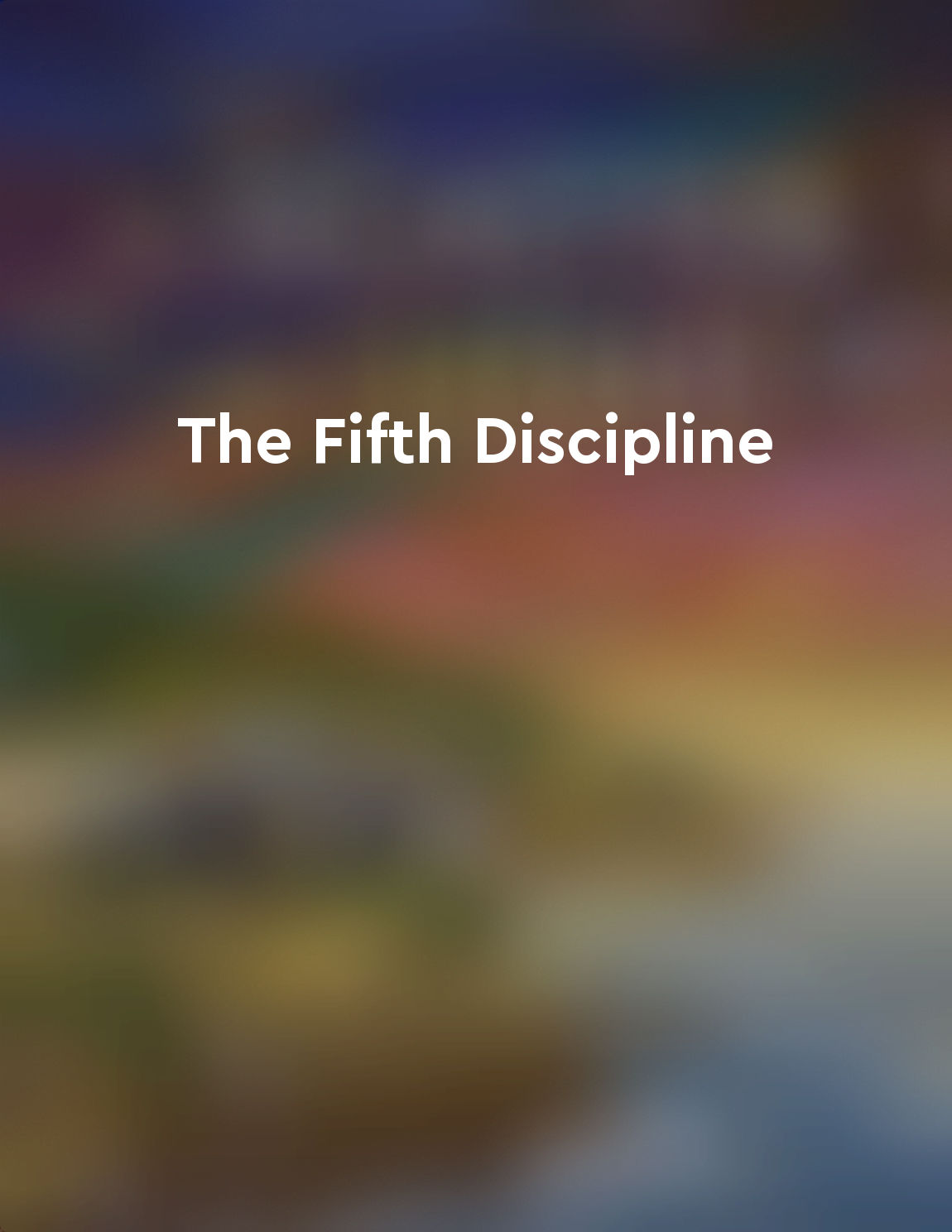Audio available in app
Organizational learning is an ongoing journey, not a destination from "summary" of The Fifth Discipline by
The notion that organizational learning is a continuous process, rather than a final goal to be achieved, is a fundamental principle in understanding the dynamics of learning within an organization. This concept challenges the traditional view of learning as a one-time event or a specific outcome, highlighting the ongoing nature of learning within a complex system. By emphasizing that learning is a journey, rather than a destination, the focus shifts from achieving a particular end result to fostering a culture of continuous improvement and adaptation. This perspective acknowledges that organizations are constantly evolving and facing new challenges, requiring a dynamic approach to learning and development. In this framework, learning becomes a way of being, a core aspect of the organization's identity and functioning. It is not something that can be compartmentalized or isolated from the day-to-day operations, but rather permeates every aspect of the organization, influencing decision-making, problem-solving, and innovation. The idea of organizational learning as an ongoing journey also underscores the importance of reflection, feedback, and iteration. It recognizes that mistakes and setbacks are an inherent part of the learning process, providing valuable opportunities for growth and improvement. Instead of viewing failures as final outcomes, they are seen as stepping stones towards greater understanding and success. This perspective encourages organizations to embrace ambiguity and uncertainty, to see challenges as opportunities for learning and growth. It requires a willingness to experiment, to try new approaches, and to learn from both successes and failures. By adopting a mindset of continuous learning, organizations can adapt to changing circumstances, anticipate future challenges, and thrive in an ever-evolving environment.Similar Posts
External shocks can impact growth trajectories
External shocks, such as sudden changes in technology, government policies, or global economic conditions, have the potential t...

Develop a routine
Developing a routine is essential for effectively managing your time and priorities. It provides structure and consistency to y...
Build a feedbackrich culture
Building a feedback-rich culture is essential for creating a high-performing organization. This means creating an environment w...

Lead by example and inspire others
Leading by example and inspiring others is not just about telling people what to do. It's about showing them through your own a...
Appreciating the value of feedback
Feedback is a powerful tool for learning. It provides valuable information about how well we are understanding a subject or tas...
Identify key players in the customer’s organization
Identifying key players in the customer’s organization is crucial for successful selling. These key players are the individuals...

Systems thinking is a powerful tool for understanding complex issues
Systems thinking offers a unique perspective that enables individuals to grasp the interconnections and patterns in complex iss...
Prioritize selfcare
The concept of prioritizing self-care is essential for achieving success in both personal and professional life. It involves re...

Embrace diversity of thought
Diversity of thought is a powerful force that drives creativity and innovation. When we embrace diverse perspectives, we open o...
Lead with courage and integrity
Courage is the root of all great leadership. It takes courage to rise above mediocrity and be exceptional in all that you do. W...
